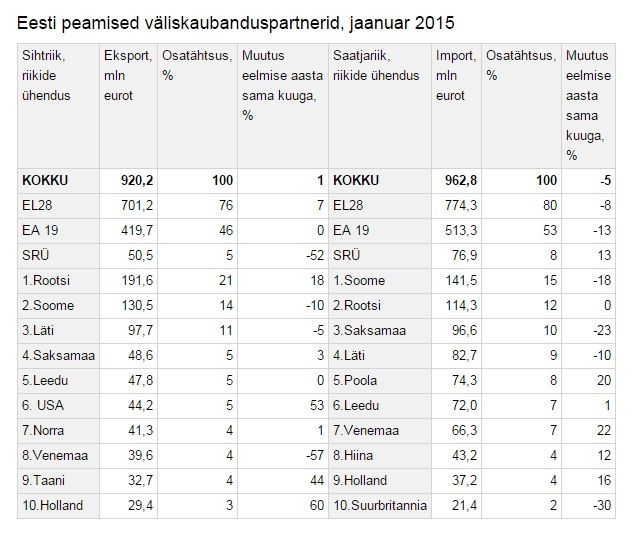Saabunud hapukurgihooajale natuke harivat lugemist seltsiks. Üks kuu aja vanune ülevaade Vene majanduse pikaajalistest proleemidest ja sanktioonide mõjust pealkirjaga "Vene majandus oli hukule määratud ennem Ukraina sündmusi".
http://www.themoscowtimes.com/opinion/a ... 17071.html
Since Putin came to power, high global oil prices and an expansion of domestic production caused an increase in state revenues that underpinned the strengthening of the Russian state after the chaos of the 1990s. This was done by increasing state control over the strategically important hydrocarbons sector.
However, this growth model neglected the more dynamic part of the Russian economy that had emerged from the ashes of the Soviet planned economy — the vibrant private sector inhabited by small and medium-sized enterprises (SMEs) operating in the nonstrategic sectors of the economy.
While the state transferred resources from the revenue-generating sector of the economy (hydrocarbons) to the revenue-dependent part (state bureaucracy, military, welfare), it singularly failed to improve the environment for private business.
The events of 2014 — the slump in oil prices and the conflict in Ukraine — have exposed this weakness. Western sanctions and Russian counter-sanctions have reduced trade and investment flows between Europe and Russia, while the dramatic fall in the price of oil — Russia's primary export and the source of around half of federal budget income — has triggered a precipitous depreciation of the ruble.
However, this time round, adversity is having the opposite effect on reform prospects, as statist factions in government use a threatening international environment to justify centralization and international isolation. The country's current economic problems have not prompted reform, but instead more state lending to favored sectors, more controls over the financial system and greater emphasis on import substitution. The conditions for private business are worsening as a result.
The conventional assessment of the likely effects of Western sanctions on Russia holds that sanctions should weaken the existing system of government and strengthen the cause of reformers currently outside the inner circle of power. However, what we are instead seeing is a "circling of the wagons" as the system of revenue sharing for key political and social constituencies is reconfigured to further entrench the current system of rule.
As a result, the prevailing system of political economy that is in such urgent need of transformation may in fact be preserved in a more ossified form.
Maakeeli siis: Putini võimuletulek seondus nafta hindade kasvuga ja kontroll kaoses oleva riigi üle saavutati riigpoolse kontrolli tõhustamisega süsivesikute sektoris. Kahjuks välistas selline majandusmudel kohanemisvõimelisema majandusvaldkonna - mittestrateegilises valdkonnas tegutseva väikeettevõtluse- arengut. Liigutades resursse käivet genereerivast valdkonnast (süsivesikud) käivet tarbivasse valdkonda (bürokraatia, sõjavägei, sotsiaalhoolekanne), ebaõnnestus ettevõtluskeskkonna arendamine.
2014 aasta sündmused on teinud selle nõrkuse ilmseks. Lääne sanktsioonid ja Vene vastusanktsioonid vähendasid kaubavahetust EL ja Venemaa vahel, samas kui nafta hinna kukkmine tõi kaasa rubla kukkumise.
Slemet et reformida ettevõtluskeskkonda on valitsus kasutanud vaenulikku väliskeskkonda tsentraliseerimise ja isoleerumise eesmärkidel. Reformide asemel on mindud riikliku valdkondliku laenupoliitika eelistuste, rahandusüssteemi kontrolli jms. Eraettevõtluse tingimused on sellega halvenenud.
Lääne sanktsioonid on tehtud eeldusel, et seeläbi nõrgeneb võimusüsteem ja tekib suurem surve reformide elluviimiseks. Tulemus on vastupidine- eksisteeriv poliitiline süsteem, mis nii väga vajab reforme, võib olla seetõttu külmutatud.
No one said survival was fun.
